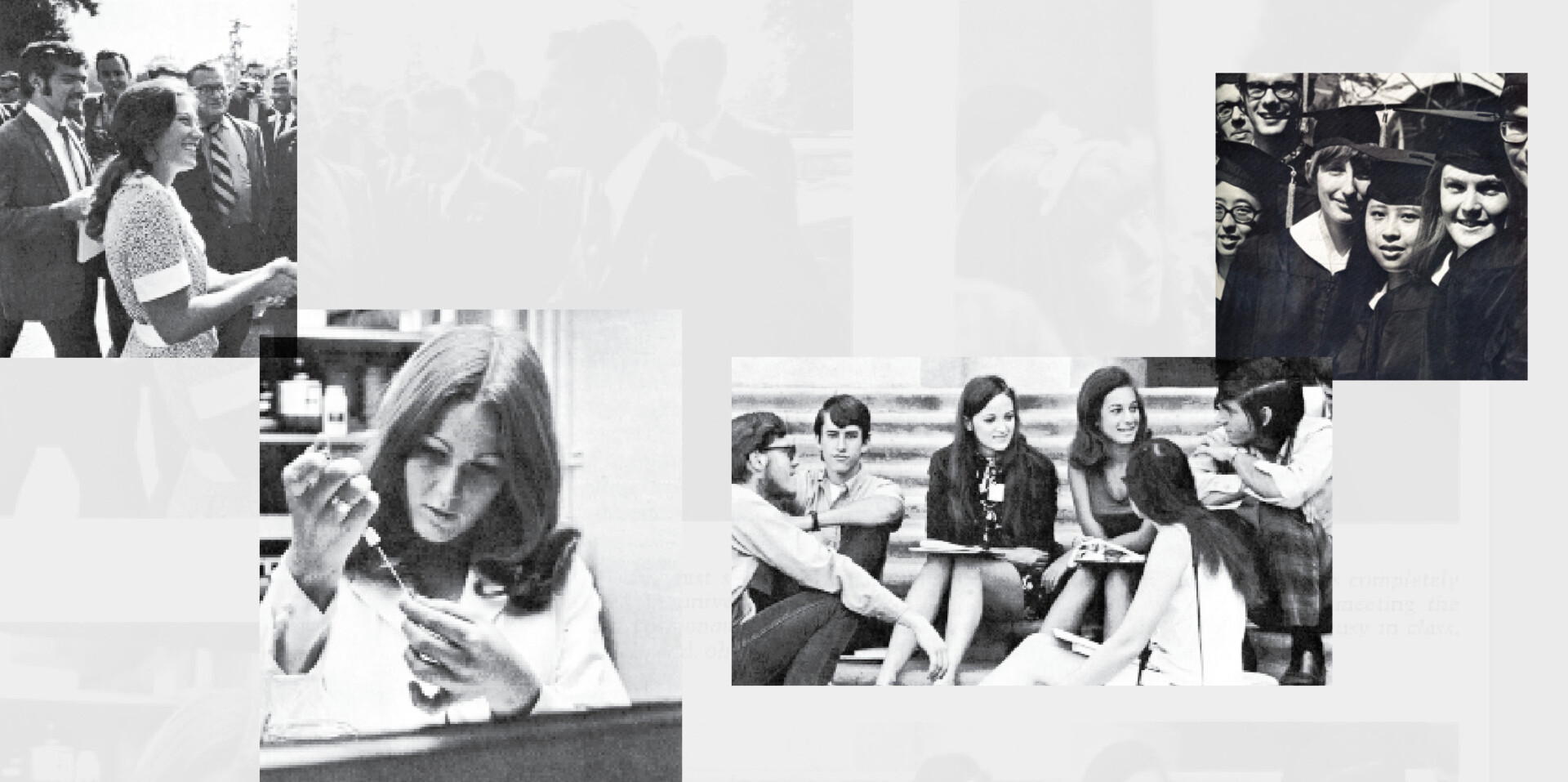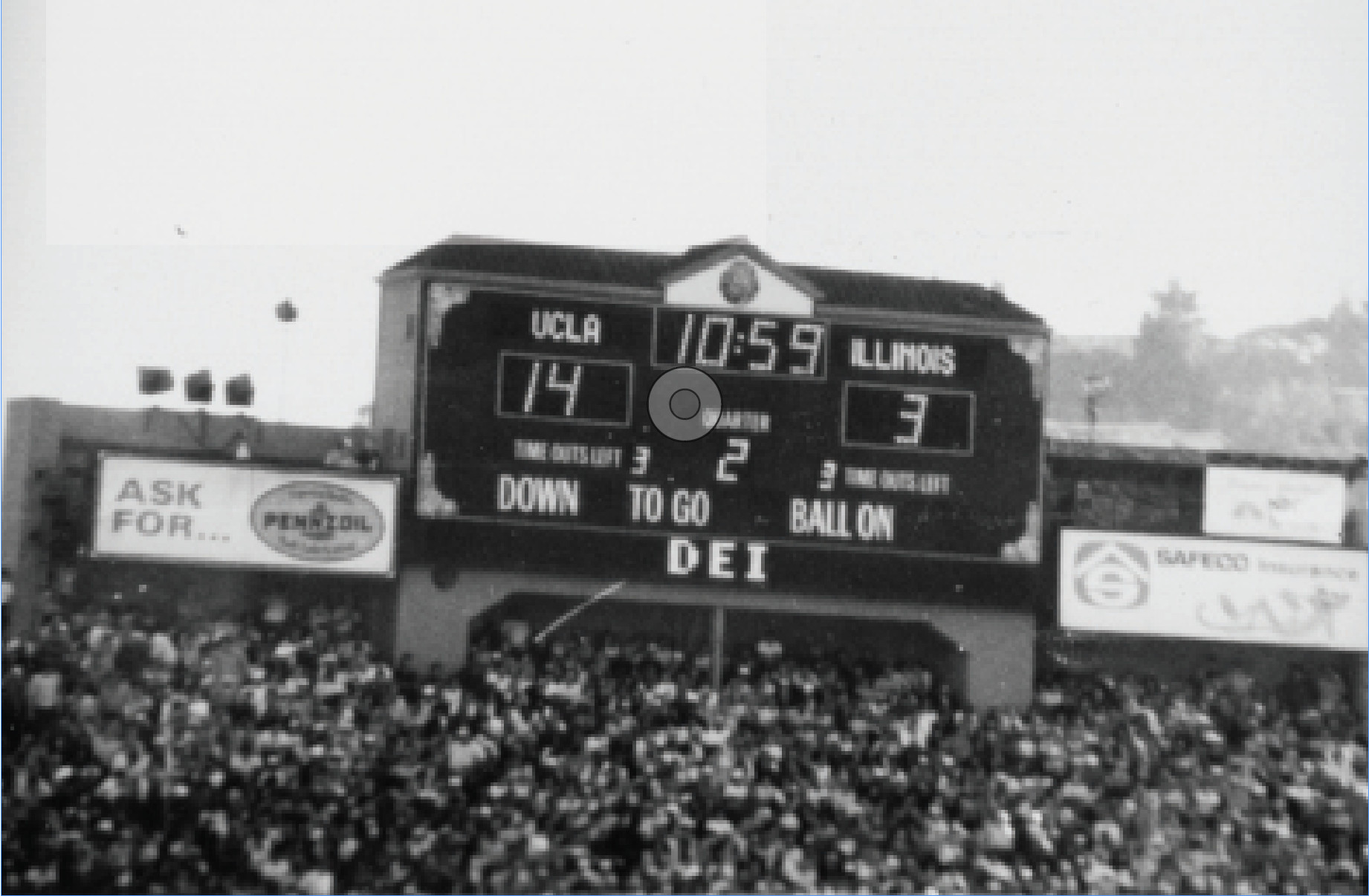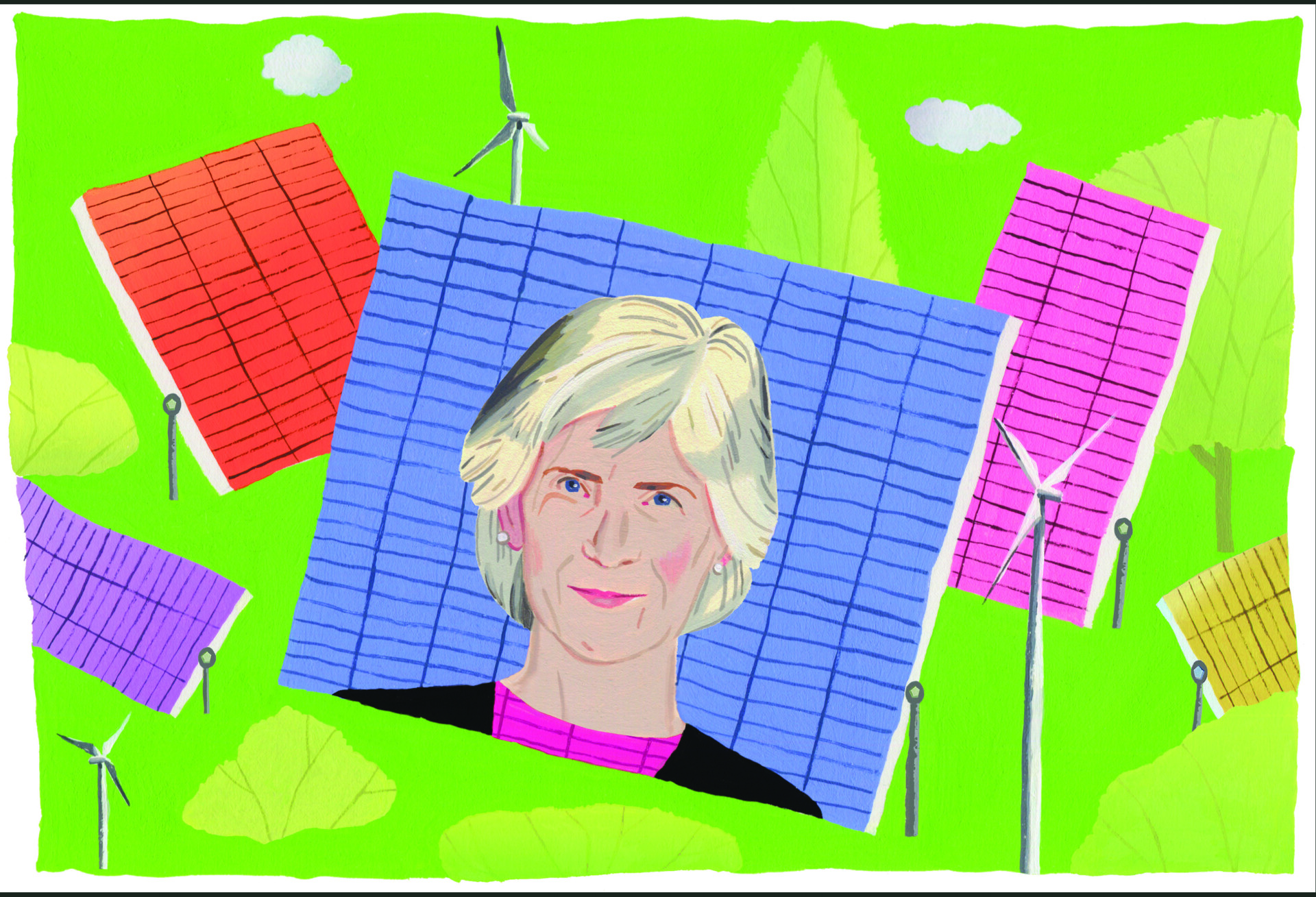The Pioneers
On the 50th anniversary of their graduation, the first four-year female graduates reflect on their time on campus—and where they went from here.

The women sitting on Beckman Lawn that day fought hard for every positive word uttered on the stage. In 1970, a different set of words was said to them by a small but vocal community of skeptics. Fellow students told Rhonda MacDonald, MS (BS ’74) that Caltech had lowered its standards to admit women. Louise Kirkbride’s, MS (BS ’75, MS ’76) first advisor told her she was a “waste of an education.” Mary Eichbauer’s, PhD (BS ’74) advisor suggested she drop out, get married, and have children. He told her that as long as there was a man in the country who could benefit from a Caltech education, the Institute should not admit women.
Their response to the critics? Keep studying.
They worked hard in the classroom and the laboratory and became researchers, engineers, and doctors, and also entrepreneurs, children’s theater directors, and writers. Thanks to them, the cruel words faded and eventually quieted. Today, 43% of Caltech undergraduates identify as female.
“Some might say that as women, we were trailblazers, but I think we were more like guinea pigs back in the early 1970s,” Joyce Hsiao, MS (BS ’74, MS ’77) says. “Who knows what would have happened if the women in our class had all been so miserable that we all left Caltech and transferred to another school? Fortunately, that did not happen and enough of us were able to graduate so that Caltech could continue to include women as part of their undergraduate program.”
In celebration of the 50th anniversary of Caltech’s first four-year female graduates, Techer interviewed Kirkbride, Eichbauer, Hsiao, and MacDonald about their Caltech experience and how it shaped their lives.
When Louise Kirkbride landed at Los Angeles International Airport in late summer 1970, she expected to be stopped by the police. Hours earlier, the 17-year-old had packed her belongings and boarded a plane without telling her parents. Once they learned of her plans, Kirkbride’s parents called the authorities. “I was just so hell-bent on being a Caltech student that I would have crawled over broken glass to get there,” Kirkbride says. “It was absolutely the hardest school to get into, which made it irresistible to me.”
The self-described suburban Philadelphia fugitive did not have to face the turmoil alone. She had supporters, which she called Team Louise, and they included President Brown, who called Kirkbride’s parents. Other Team Louise members found her a job as a waitress at the Athenaeum and helped her become an emancipated minor.
Once she settled in, Kirkbride discovered that Caltech was challenging and intense. And she loved it. “Students complain about how hard it is, but that’s the point,” says Kirkbride, a Caltech trustee for 29 years. “Everything else in your life is going to seem doable after Caltech.”
That may be why she moved to Silicon Valley in the early 1980s to launch her own software startup despite having no formal training in software development or business. “I started going around to venture capitalists with my business idea and, honest to god, that’s where my Caltech education paid off,” says Kirkbride, whose companies modernized the customer service industry. “Once you take Physics 1 with Richard Feynman, nothing scares you. Absolutely nothing.”
Kirkbride did not attend the 1974 commencement. Tired from working nearly full-time at the Athenaeum and balancing her studies, she moved to Santa Barbara for a year to work for a Caltech alumnus. She graduated the following year. Most of her memories about commencement are foggy except for one. Says Kirkbride, “Harold Brown walked up to my parents and I thought, ‘Is he going to punch my father?’ because it got really nasty for a while. Instead, he reached out and grabbed my father’s hand and said, ‘I had no idea what you were going through.’”
Part of what thrilled Mary Eichbauer about being accepted to Caltech was the opportunity to be in the first class of female undergraduate students. The thrill was short-lived. She received persistent and unwelcome attention from men, both faculty and students. One night, drunk male students walked the women’s corridor in Blacker House, singing songs about abducting Eichbauer and her housemates. The men turned the doorknobs to each of their rooms. Eichbauer says the men were never punished for their actions.
These harassments, coupled with Caltech’s rigorous curriculum and her waning interest in science, took a toll on Eichbauer. She flunked out her sophomore year. “For a long time, I felt like a failure,” Eichbauer says. “I really didn’t do what I had set out to do. A lot of women cut through the noise, but I couldn’t. I was too affected by it.” The Institute quickly reinstated her and, in an act of grit and resilience, Eichbauer retook her sophomore classes while maintaining a full junior course load. She soon regained her academic standing and graduated on time.
She also switched her focus from science to English literature and found a passion for the humanities and the arts. Some of the leading figures of the day visited Caltech and Eichbauer learned from and met many of them, including Lawrence Durrell, Anaïs Nin, and Frank Capra (BS ‘18). After graduation, Eichbauer earned a doctorate in comparative literature from UCLA and worked as a university instructor, technical writer, and freelance editor at different times in her life. More recently, she has become a published poet.
The young girl who once collected rocks and dreamed of becoming a geologist still lives inside her, she says. Scientific thinking has shaped her worldview and her poetry is infused with the curiosity and big-picture thinking she learned at Caltech.
“Being the ‘first’ to do anything is difficult,” Eichbauer says. “Collecting the stories of the women who paved the way for others is an essential part of preserving Caltech’s history. I’m happy to have the chance to tell my story.”
When Joyce Hsiao left her home in Silver Spring, Maryland, to attend Caltech, the 18-year-old had two goals in mind: figure out how to make the world a better place and explore the California lifestyle. Hsiao’s seven years at Caltech—four as an undergraduate, two as a staff member, and one as a graduate student—transformed her life more than she imagined.
Hsiao seemed destined to be a scientist. She had grown up in a family of scientists and engineers. Her mother, Helen Hsiao, was a physical chemist and her father, C.Y. Hsiao (BS ’26), was a civil engineer and one of the first Chinese-born students to attend Caltech. Hsiao majored in chemistry but did not want to spend her life working in the laboratory. This realization sent her searching for an alternative career.
“The focus among students was who could solve a problem faster, quicker, and more elegantly, and I found myself drawn to more practical and physical challenges,” Hsiao says.
Hsiao found her ideological counterpart in the late marine biologist Wheeler North, PhD (BS ’44, BS ’50). The ocean was North’s laboratory and scuba diving was one of his research tools. He was trying to repopulate kelp beds off the Southern California coast and was recruiting Caltech students. Hsiao, who had just received her bachelor’s degree, took a scuba diving class at Caltech and joined him.
That experience gave her a lifelong friend in North and an unexpected career. Hsiao returned to Caltech to earn her master’s degree in environmental engineering and North served as her advisor. For the next 44 years, Hsiao specialized in water quality projects throughout Northern California.
Yet the greatest gift Caltech gave her was connecting her to student Bob Stanley, whom she met during her first year at Caltech. They remained together after he transferred to UCLA. “Caltech changed my life in all good ways because it led me to not only a fulfilling career but also to my husband,” Hsiao says. “We’ve been married 45 years, have four kids, and I couldn’t have asked for anything better.”
Growing up in New Bedford, Massachusetts, there were not a lot of teenagers who were nerdy like Rhonda MacDonald but still fun-loving—socially awkward but still social. At Caltech, she fit right in. She formed a close-knit group of male and female friends from Ricketts House, and no one cared about each other’s genders. They had fun and pulled pranks, which included making their fellow Skurve’s room “disappear” by plastering and painting over his door.
The housemate “eventually found the location of the door, grabbed a tool and started hacking away at the wall,” MacDonald says. “Somebody called security because he was vandalizing the house, and they took him away. We just had so much fun with that prank.” To this day, MacDonald’s group of friends stay in touch, traveling and attending reunions together.
Academically, she thrived in the Division of Engineering and Applied Science. Faculty gave her the freedom to explore and stumble in different disciplines until she found her footing in civil engineering. The division’s focus on theory and problem-solving was invaluable to MacDonald after graduation as she switched back and forth between the petrochemical and aerospace industries.
Her greatest champion was the late mechanical engineering professor Rolf Sabersky, PhD (BS ’42, MS ’43, PhD ’49). He had two daughters close in age to MacDonald, and he looked out for her as a father would.
“Dr. Sabersky cared about my entire well-being at Caltech,” MacDonald says. “I was invited to his home for Thanksgiving dinner, and when my mother sold her small business due to health issues, he and his family offered me a room at their house. Caltech came through with financial aid, so I never took him up on his offer, but he was always very special to me.”
The friendship with Sabersky was so important that her favorite memory of commencement was not hearing her name called or walking across the commencement stage. Instead, she remembers the joy of introducing Sabersky to her family.
Related Articles
-

A Legendary Hack Turns 40
In this moment of Caltech mischief that required months of planning, students Ted Williams, PhD (BS ’84) and Dan Kegel (BS ’86) manipulated the sco...
-

The Pioneers
On the 50th anniversary of their graduation, the first four-year female graduates reflect on their time on campus—and where they went from here.
-

All In
The key to a more sustainable future? Make sure everyone can join the hunt for solutions, says National Energy Technology Laboratory director Maria...